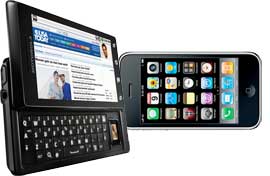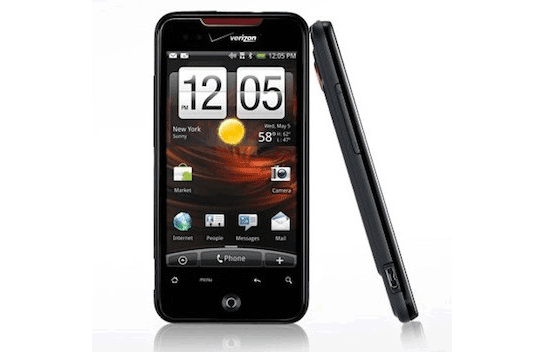 Ever since Google announced back in January that it would be selling be a Verizon Wireless-compatible Nexus One in the spring, I’ve known people who planned their whole smartphone-buying strategy around that fact. As of January, the Nexus One was the hottest Android handset on the market, and plenty of folks swear by Verizon. It sounded like a match made in heaven–or at least a potentially attractive combination,
Ever since Google announced back in January that it would be selling be a Verizon Wireless-compatible Nexus One in the spring, I’ve known people who planned their whole smartphone-buying strategy around that fact. As of January, the Nexus One was the hottest Android handset on the market, and plenty of folks swear by Verizon. It sounded like a match made in heaven–or at least a potentially attractive combination,
Well, spring has sprung, and it sounds like the Verizon Nexus turned out to be DBA (Dead Before Arrival): Bloomberg is reporting that the handset has been scrapped. It’s not entirely clear why–the story begins by saying that Verizon “retreated” from being involved with the Nexus One, but then it quotes a Google spokesperson saying that Google decided to skip it because of “amazing innovation happening across the open Android ecosystem,” and a Verizon spokesperson who seems to say that the carrier is still interested. Maybe it was a mutual decision.
In any event, it’s no biggie. Verizon has already launched the Droid Incredible, a well-reviewed phone that’s essentially the Nexus One only more so. And for all Google’s talk of changing the way people buy phones, it remains unclear what the benefit is of getting your phone from Google rather than a carrier–especially in the case of Verizon, since there’s no such thing as a Verizon-compatible phone that’s unlocked and able to work on other networks. The Verizon Nexus One was going to be a Verizon Nexus One, even if it was Google doing the order fulfillment.

 As I wrote a few weeks ago, frustration with AT&T coverage in San Francisco’s SOMA neighborhood led me to put my iPhone 3GS aside and
As I wrote a few weeks ago, frustration with AT&T coverage in San Francisco’s SOMA neighborhood led me to put my iPhone 3GS aside and 
 Just a few weeks back we heard noise of Google heading into the set-top box space.
Just a few weeks back we heard noise of Google heading into the set-top box space. 